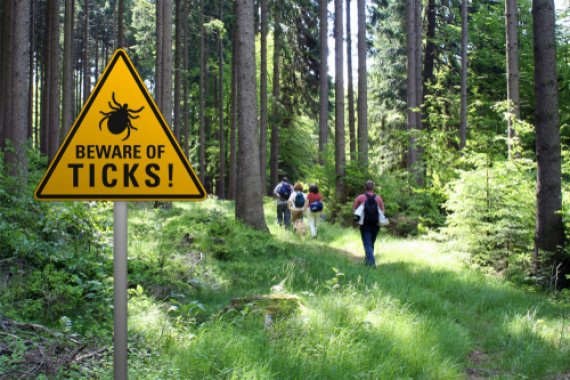Climate change is causing vector-borne diseases such as Lyme disease and the West Nile virus to spread.
The Laboratory of Entomology of Wageningen University will collaborate with researchers from Nijmegen, Rotterdam and Utrecht, the National Institute for Public Health and the Environment (RIVM), the Netherlands Food and Consumer Product Safety Authority (NVWA) and blood banks across the Netherlands. The researchers have received 9 million euros from the Dutch Research Council (NWO) and have a total of 10 million euros to spend. The Entomology group will appoint two PhD candidates.
Tick season
The research will mainly focus on mapping the influence of climate change on the spread of vector-borne diseases, explains Wageningen entomologist Willem Takken. As temperatures are rising, mosquitoes are advancing towards Northern Europe, and with that, the risk of more and new infectious diseases increases. For one, the warming will cause a longer tick season, says Takken, which increases the chance of people contracting Lyme disease.
Research lab
The researchers will investigate whether the mosquitoes carry over new viruses and parasites and whether these viruses infect mosquitoes and other hosts. WUR has a research lab with the highest safety level, in which researchers infect mosquitoes with viruses and check their spread. WUR and Erasmus University will thus assess the risks of the West Nile virus, the Zika virus and dengue fever.
Rare
The Rotterdam virologist Marion Koopmans will lead the research. ‘Fortunately, large disease outbreaks are rare. But we only start investigating from the moment they do happen, which means we’re always one step behind. Due to the changes occurring in the world, we need to take into account that infectious disease outbreaks will become more common, even in Europe. This is why we are starting this collaboration.’
Risk forecasts
In the next five years, a total of 25 PhD candidates will be investigating whether new insect-borne diseases could arise in the Netherlands. They will account for climate changes, water management, changing agricultural methods and international trade. ‘Ultimately, we would like to develop a kind of weather forecast for risk of outbreaks,’ Koopmans explains.

 Photo: Shutterstock
Photo: Shutterstock